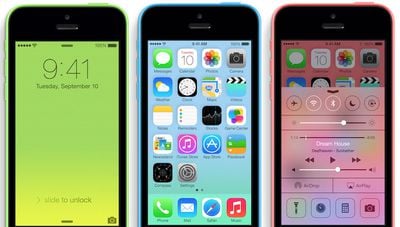Breaking into the iPhone of San Bernardino shooter Syed Farook yielded no new leads in the FBI's investigation, but it did help answer remaining questions about the attack, reports CNN.
According to anonymous U.S. law enforcement officials, the iPhone did not contain encrypted messages or evidence of communications with other unknown ISIS supporters, but it did confirm the shooters did not have outside help as there was no evidence Farook made contact with a third-party during an 18-minute timeline gap.

The FBI has also concluded there was data on the phone it did not have access to previously, an unsurprising find because the iPhone was in use for several weeks after the last iCloud backup. Apple was able to provide data from iCloud backups to the FBI, but the FBI pursued the iPhone unlocking because there was no way to know if there was additional information on the phone without breaching it.
Investigators are now more confident that terrorist Syed Farook didn't make contact with another plotter during an 18-minute gap that the FBI said was missing from their time line of the attackers' whereabouts after the mass shooting, the officials said. The phone has helped investigators address lingering concern that the two may have help, perhaps from friends and family, the officials said.
The phone didn't contain evidence of contacts with other ISIS supporters or the use of encrypted communications during the period the FBI was concerned about. The FBI views that information as valuable to the probe, possibilities it couldn't discount without getting into the phone, the officials said.
CNN's report is in line with information shared last week by CBS News, which said "nothing of real significance" had been discovered on the device. As The Verge points out, the lack of useful contacts or messages on the phone has brought an anticlimactic end to the vicious public encryption battle Apple and the FBI fought over the San Bernardino iPhone.
Apple and the FBI are continuing their encryption dispute over a case in New York. The FBI has asked that a judge order Apple to unlock the iPhone 5s pertinent to a Brooklyn drug case, which Apple has refused to do. While the order was initially denied, the FBI has filed an appeal and the case has yet to be decided.
Apple legal chief Bruce Sewell and Amy Hess, executive assistant director for science and technology at the FBI, are also testifying before congress this afternoon over encryption matters.
Note: Due to the political nature of the discussion regarding this topic, the discussion thread is located in our Politics, Religion, Social Issues forum. All forum members and site visitors are welcome to read and follow the thread, but posting is limited to forum members with at least 100 posts.























